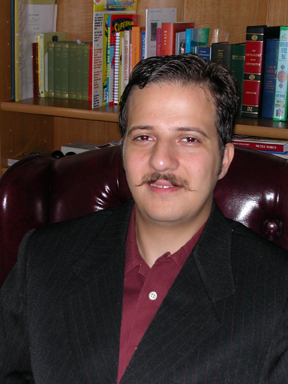
A graduate of Berklee and New England Conservatory, Dr. Sanlikol teaches at Emerson and Brown. I asked him about his work, Jewish music, and where to find good Turkish food in Boston, of course!
You’re originally from Turkey, but were first classically trained in Western Music?
Yes. There are two things to keep in mind about Western Music in Turkey. Western Music officially started being taught and performed in the Ottoman Empire during early 19th century, if not before. There were always huge groups of Italians and other Europeans living in Istanbul’s Pera district even before the city passed onto the Turks during mid-15th century. So, when one is talking about 1980s in Turkey, it should be noted that in major cities (such as Istanbul and Ankara) there were state-sponsored symphony orchestras, opera and ballet as well as western music conservatories.
However, I grew up in Bursa. Bursa was and still is one of the top 5 major cities of Turkey however, during late 70s and 80s it still did not have an active western music scene. I was classically trained in Western music due to my mother being a western classical piano teacher. Most of my family are Turkish Cypriots who started living in Turkey during the 70s. My mother was trained in western classical piano while growing up in Cyprus (which was under British mandate until 1960).
This new album is about 1,000 years of music in Istanbul. Where does Jewish music fit into that history?
We know that Jews lived in Istanbul even during the Byzantine period. However, especially beginning in 1492, Istanbul saw a great increase in its Jewish population when Sephardic Jews fled the Spanish Inquisition and the Ottoman Empire welcomed them (unlike other European countries at the time). Since late 15th century, Sephardic Jewish culture has become an integral part of not only Ottoman/Turkish but also Istanbul culture. One of the most stunning examples proving this is Maftirim: Hebrew devotional poetry (piyutim) set to Ottoman/Turkish makam (modal) music for use in the synagogue since at least the 16th century.
How does working in collaboration with other musicians differ from working on a project on one’s own? Is it more difficult, like too many cooks in the kitchen, or easier?
Actually since in this project I was the musical director, there weren’t too many cooks in the kitchen. There were many ensembles I had to direct but, they all respected my position and followed my lead respectfully. That being said, I also gave them room to breathe and listened to their comments and tried to incorporate as much of their suggestions as possible.
I’m a Turkish food fanatic, but haven’t found anything comparable to what I’ve enjoyed in New York City. Any chance you have a favorite spot here in Boston? (I’m more than willing to get in my car for good patlican.)
You’re right. The restaurants in New York City are in better shape. Turkish Airlines have direct flights to NY so I suppose a lot of the restaurants in NY have quicker access to fresh ingredients. Also, there is a far bigger Turkish community in NY compared to that of Boston. However, if I desire Turkish food I go to Pasha restaurant in Arlington.
Explore more Music on JewishBoston.com.

This post has been contributed by a third party. The opinions, facts and any media content are presented solely by the author, and JewishBoston assumes no responsibility for them. Want to add your voice to the conversation? Publish your own post here. MORE


